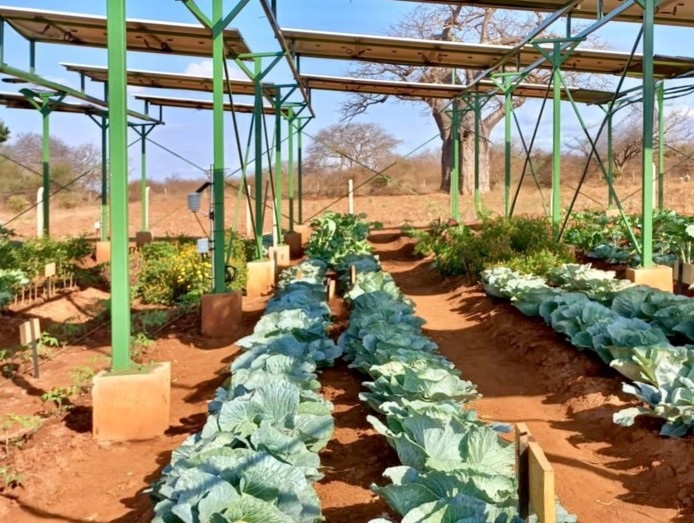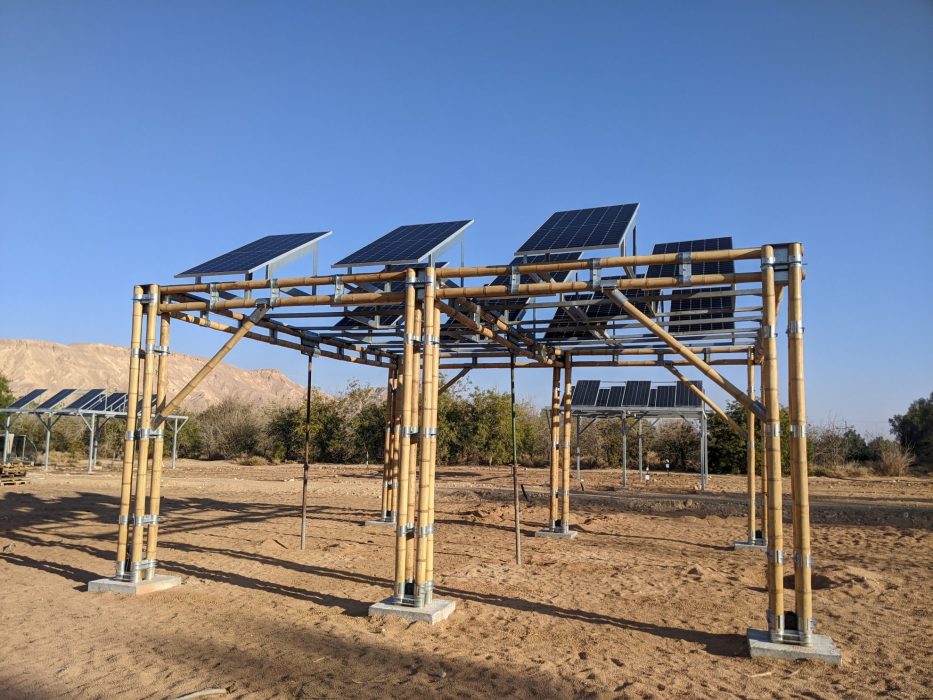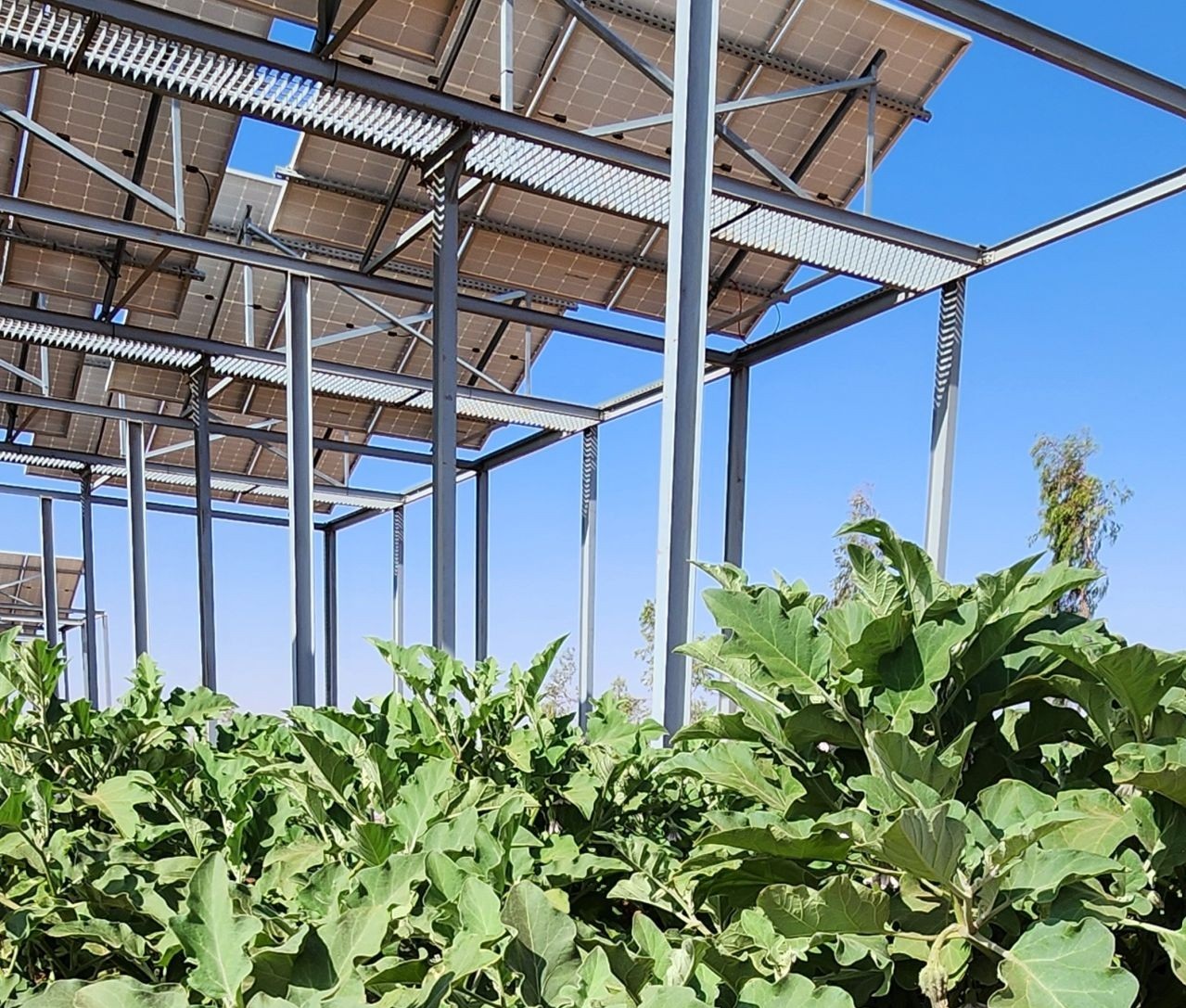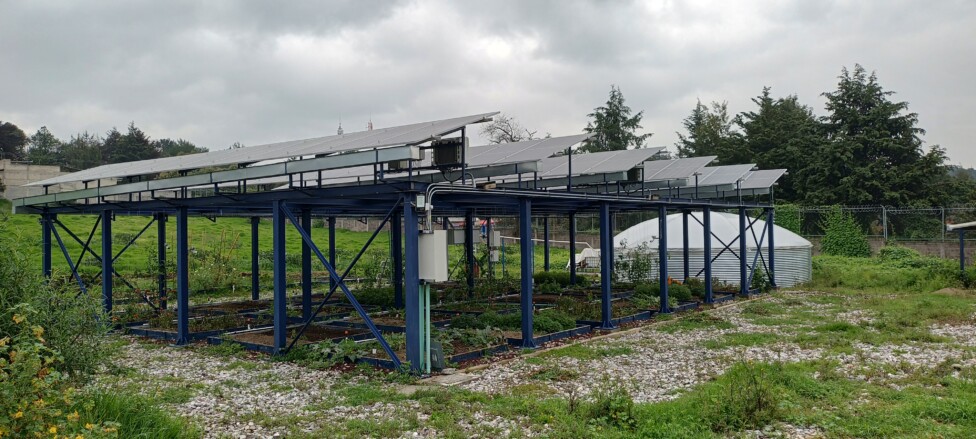Global Collaboration & Living Labs
An agrivoltaic solution for Arizona’s desert will differ from one for a Colorado prairie or a smallholder farm in East Africa. Scaling "out" means adapting the concept to a wide variety of social-ecological contexts. Our approach is to create Agrivoltaic Living Labs—collaborative field sites where we co-design and test solutions with local partners, ensuring they are effective, appropriate, and scalable for each unique environment.[1]
Kenya: Food & Water Security
In Makueni County, our team helped implement Kenya’s first community-scale agrivoltaic pilot. An elevated solar canopy powers a well pump for irrigation and drinking water, while also providing electricity for a local school and clinic.[2] The shade has boosted vegetable yields while cutting water use by roughly half, demonstrating a powerful model for addressing energy access and food security in tandem.[3]

Israel: Extreme Desert Farming
In the hyper-arid Arava Desert, SALSA collaborators are pioneering agrivoltaics for extreme heat and drought. At experimental plots in Kibbutz Ketura, shading from solar canopies has reduced irrigation requirements for crops by up to 50% without hurting yields. These findings, which echo our trials in Arizona, validate agrivoltaics as a promising climate adaptation strategy for the world’s most water-scarce agricultural regions.[4]

Morocco: North Africa's First Platform
In partnership with the Green Energy Park, SALSA helped establish the first replicated agrivoltaic research platform in North Africa. Using a unique "chessboard" panel layout, initial monitoring shows promising results: ~30% water savings for crops and a modest +5% gain in solar panel efficiency from the cooling effect of the plants below. This site serves as a vital research and training hub for a region where water constraints and solar potential are both high.[5]

Mexico: Urban and Arid Farming
The P.A.S.E. Project, Mexico’s first full agrivoltaic pilot, was inaugurated in 2022 near Mexico City. Integrated with a rainwater harvesting system, the installation slashed the need for additional irrigation by up to 80%.[6] A Climate Scorecard report noted that the combined food and energy output from the site could be ~60% more valuable than using the land for a single purpose. The project's success has spurred feasibility studies to expand agrivoltaics to arid northern Mexico.[7]
